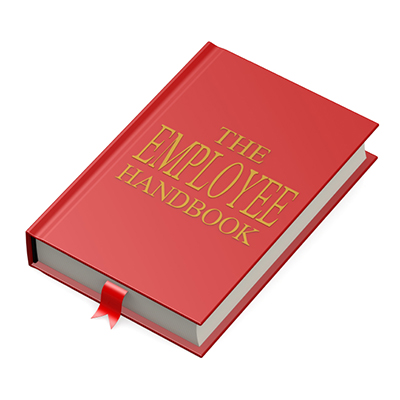
Most commonly a Staff handbook will include absence management, performance management and disciplinary procedures, to name just a few and an employer will almost always want to avoid these procedures being contractual so as to avoid any claim for breach of contract should there be any deviation from the policy. In addition, employers will also want to retain the flexibility to adopt an abbreviated dismissal process where the employee has no ordinary unfair dismissal rights.
However, at times, due to poorly drafted policies, the lines between what is non-contractual and what is contractual can be blurred.
This was the issue in the recent Court of Appeal case, Department for Transport v Sparks.
Seven employees brought a joint claim against 7 different government departments, all falling under the umbrella of the Department for Transport. The dispute surrounded the wording of a short-term absence management policy which, if it was contractual, did not allow the employers to take the appropriate disciplinary action against employees until the trigger point of 21 days absence had been exceed in any 12 month period.
The employers argued that the policy did not have contractual effect and was merely a “framework for dealing with absence management”. The employees on the other hand argued that the policy wording effectively made it “apt for incorporation” into the employee’s contracts of employment and therefore a failure to follow the policy was a breach of contract. The introduction to the Staff Handbook stated the following:
“The Departmental Staff Handbook, as applying to you, sets out many of your terms and conditions. It is the intention of the recognised trade unions … and of the Crown that all of the provisions of the Departmental Staff Handbook which apply to you and are apt for incorporation should be incorporated into your contract of employment.”
And
“The Departmental Staff Handbook is in two parts:
- Part A contains terms and conditions. Without prejudice to the generality of paragraph 1.2.1 above, all of Part A and all annexes of Part A which apply to you and which are apt for incorporation, will be incorporated into your contract of employment; and
- Part B contains procedures and guidance relevant to your employment relationship with the Crown. Those procedures and guidance can be relevant to the operation of your contractual terms and conditions set out in Part A, but in the event of inconsistency between Part A and Part B it is Part A which prevails.”
The absence management policy was in Part A of the Staff Handbook.
The High Court accepted this argument and made a declaration that the provisions of the Staff Handbook relating to absence management were contractual terms and that failure to follow them would be a breach of contract. The employers appealed this decision.
The Court of Appeal dismissed the employer’s appeal. They agreed with the employees and held that the terms relating to absence management were “apt for incorporation” into their contracts. The Lords of Appeal stated that, looking at the wording and the language of the Staff Handbook as a whole, the policy as stated was more than just guidance and conferred a right on employees over and above good practice. The Court also made the point that if the wording was copied and pasted into a formal contractual document it would have been impossible to sustain an argument that the wording was not contractual.
This case reiterates the importance of clear, well drafted policy wording so as to ensure that an employer is not inadvertently contractually bound to follow them. Policies should clearly be stated to be non-contractual and be drafted to provide a framework for dealing with issues when circumstances arise.
Employers should make sure they review their Staff Handbooks on a regular basis and should seek legal advice if they are unsure of the potential effect of their current policies and procedures.





